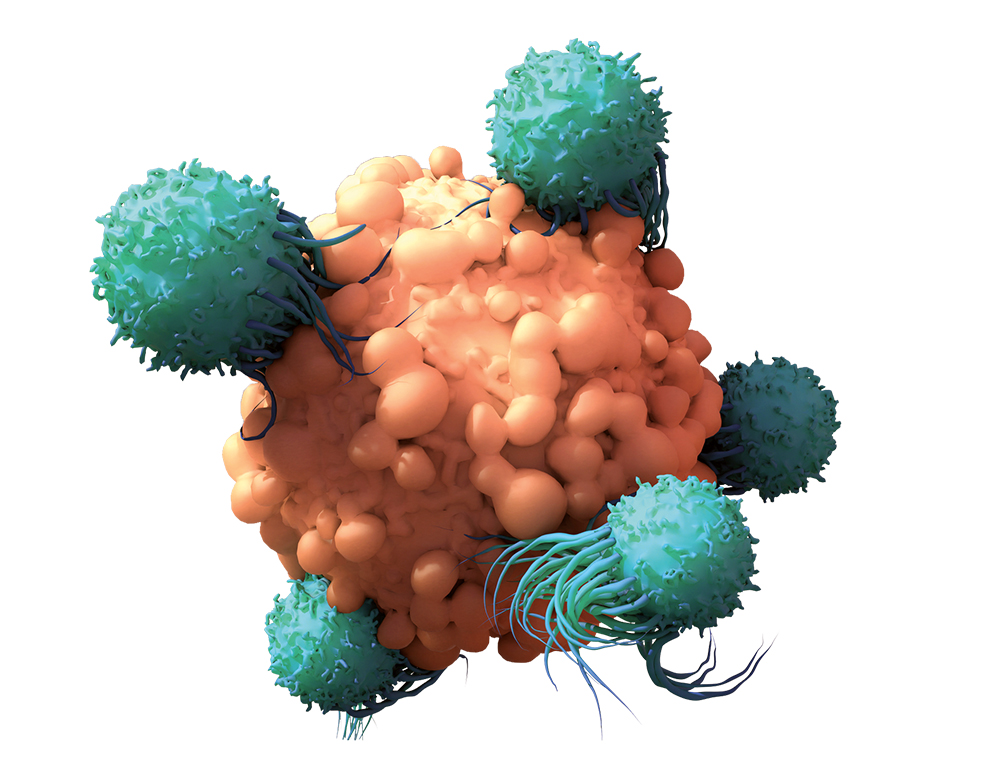CITED

“Our goal was to investigate whether aggressive treatment practices, which can cause exogenous thyrotoxicosis, can also possibly cause cognitive harm. Understanding the negative effects of overtreatment is critical to help guide clinicians in how they prescribe thyroid hormone therapy.”
—Roy Adams, assistant professor of psychiatry and behavioral sciences, and first author of a study, published in JAMA Internal Medicine, which found that excess thyroid hormone levels (thyrotoxicosis) is linked to an increased risk of cognitive disorders among older adults. Exogenous thyrotoxicosis (caused by ingesting thyroid medication) and endogenous thyrotoxicosis (caused by hyperthyroidism and Graves’ disease) were both associated with a higher likelihood of developing a cognitive disorder.
“Our experiments show our targeting peptides can not only enhance and restore mitochondrial function, but also improve their high blood glucose levels, potentially making it particularly valuable for elderly individuals struggling with obesity and diabetes by lowering blood sugar levels.”
—Ling He, associate professor of pediatrics and of pharmacology and molecular sciences, describing research indicating that newly designed AMPK-targeting peptides Pa496h and Pa496m may improve mitochondrial dynamics and high blood glucose levels in people with diabetes, obesity and age-related metabolic disorders based on findings from mice and human cells. His team’s findings appeared in Cell Chemical Biology.
“We’ve identified a powerful way to boost T cell function, offering a promising avenue for improving cancer immunotherapy and potentially treating a wide range of infectious and other diseases.”
—Cardiologist David Kass describing results of a study using laboratory-grown cells from humans and genetically engineered mice that provides evidence that modifying a specific protein in immune white blood cells known as CD8+ T cells can make the cells more robust. This potentially opens the door for better use of people’s own immune system T cells to fight cancer. The findings were published in JCI Insight.
“Our results may be the first steps in realizing the potential for independent home use of speech BCIs [brain-computer interfaces] by people living with severe paralysis. In the future, hopefully this means a participant with severe paralysis can start their day by turning on the lights and catching up with the news on TV using only their brain signals.”
—Neurologist Nathan Crone describing a study in which a BCI surgically implanted on the brain of a patient with ALS has shown success in translating brain signals into computer commands. Published in Advanced Science, the study by researchers at Johns Hopkins Medicine and the Johns Hopkins University Applied Physics Laboratory showed that computer commands were accurately translated from brain activity over a three-month period without requiring the BCI algorithm to be retrained or recalibrated.
“We know THC is psychoactive, and its concentration in marijuana plants has increased four times in the last 20 years, posing a particular danger for adolescents who are genetically predisposed to psychoactive disorders, including schizophrenia.”
—Atsushi Kamiya, professor of psychiatry and behavioral sciences, speaking about a mouse study that explored the impact of marijuana’s major psychoactive compound, THC. Researchers found changes to the structure of microglia, specialized brain immune cells, which may worsen a genetic predisposition to schizophrenia. The findings, published in Nature Communications, add to growing evidence of risk to brain development in adolescents who smoke or ingest marijuana products
